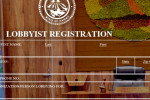Published in The Maui News, July 26, 2015
By MIKE WHITE for The Maui News
Maui County’s requirement that lobbyists register with the Board of Ethics took effect Sept. 23, 1981, when Mayor Hannibal Tavares signed into law Ordinance 1167.
Codified as Chapter 2.56.040 of the Maui County Code, the ordinance is just four sentences long. But it makes a strong statement:
Prior to appearing before any executive or legislative body, all lobbyists shall file a certified statement with the board of ethics setting forth the name, mailing address, business telephone number, and subject matter of the lobbyist. A lobbyist shall report any change in information contained in the certified statement within ten days of such change. A lobbyist shall file a notice of termination within ten days of ceasing activity as a lobbyist. As used herein, “lobbyist” means any person who engages himself for pay or other consideration for the purpose of attempting to influence legislative or administrative action of the county.
The County Council’s legislative intent was clear. Those who submit testimony to the council or otherwise urge the County of Maui to make policy or administrative decisions are required to register if they are being compensated for their service, through pay or other consideration.
The Board of Ethics has subsequently adopted administrative rules to, in theory, support the ordinance.
Lobbyists must file a registration form describing the lobbying work to be done, signed by both the lobbyist and the person or firm providing the compensation, whenever they’re hired to influence official action. The rules also state the lobbyists’ registration forms must made be available to the public.
Taken together, these policies display the logical objective of allowing everyone to know if testifiers are merely representing themselves and their own interests or beliefs or, instead, speaking on behalf of paying private interests. Understanding a testifier’s capacity can obviously help policymakers, members of the media and interested citizens to determine how to evaluate testimony.
In practice, however, the laudable principles laid out in the County Code and the Board of Ethics’ rules are apparently being disregarded, as recently brought to my attention by a member of the public.
This constituent sought to review the current list of lobbyists and was rebuffed by the county administration, until filing a formal request for public records under the Uniform Information Practices Act, the state’s public records law. Once documentation was provided, the list was so short it seemed obvious the registration requirement isn’t being enforced.
In contrast, both the State of Hawaii and the City and County of Honolulu post completed lobbyist registration forms online for easy public review and analysis. See ethics.hawaii.gov and honolulu.gov/ethics, respectively.
It’s futile to have good laws if they aren’t being enforced. And it’s hard to understand why public records that could be useful to council members and government watchdogs are kept from public view.
Nearly 34 years after its enactment, Maui County’s lobbyist registration requirement should finally be given life. Please let Mayor Alan Arakawa and the Board of Ethics know if you agree.
Mahalo.
* Mike White is chair of the Maui County Council. He holds the council seat for the Paia-Haiku-Makawao residency area. “Chair’s 3 Minutes” is a weekly column to explain the latest news on county legislative matters. Go to mauicounty.us for more information.




